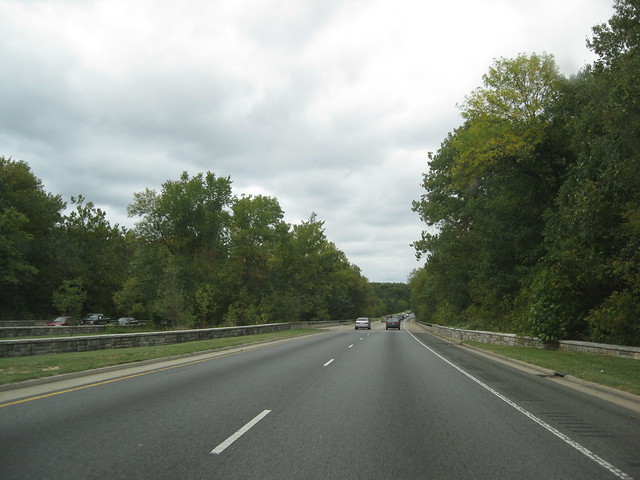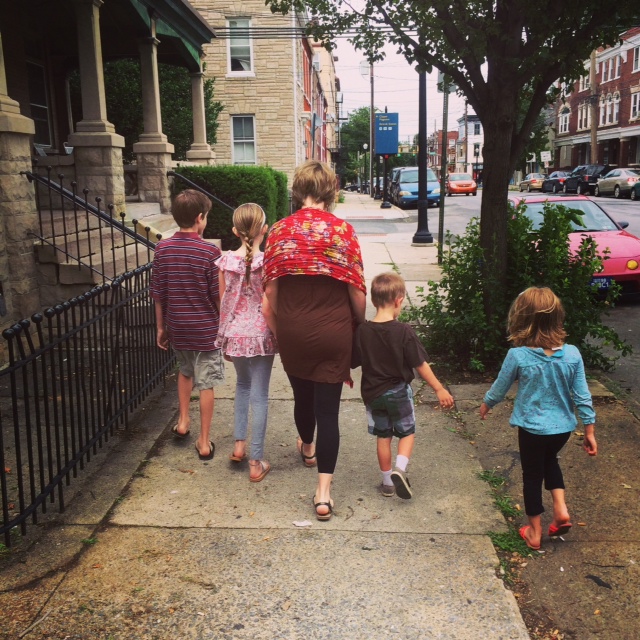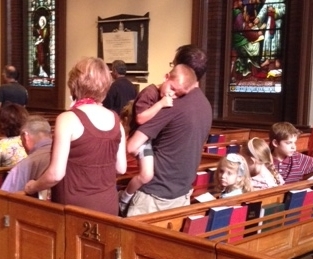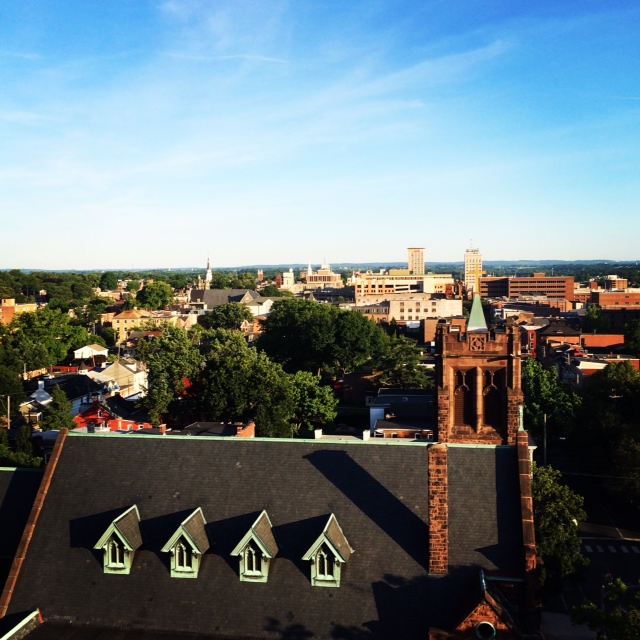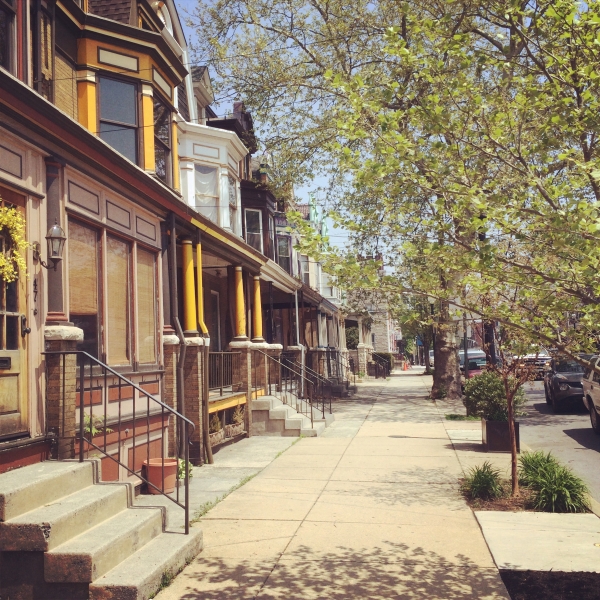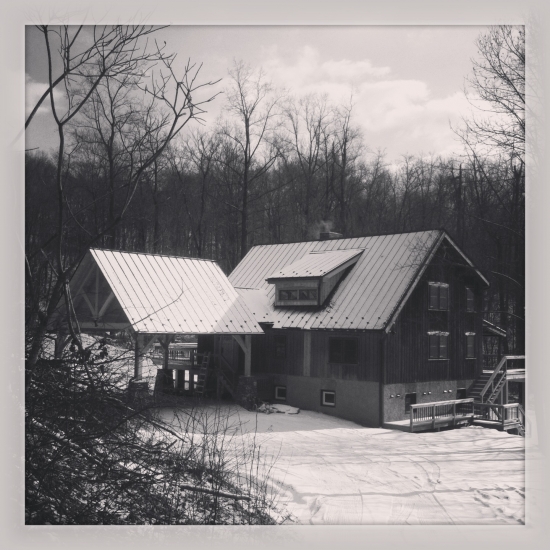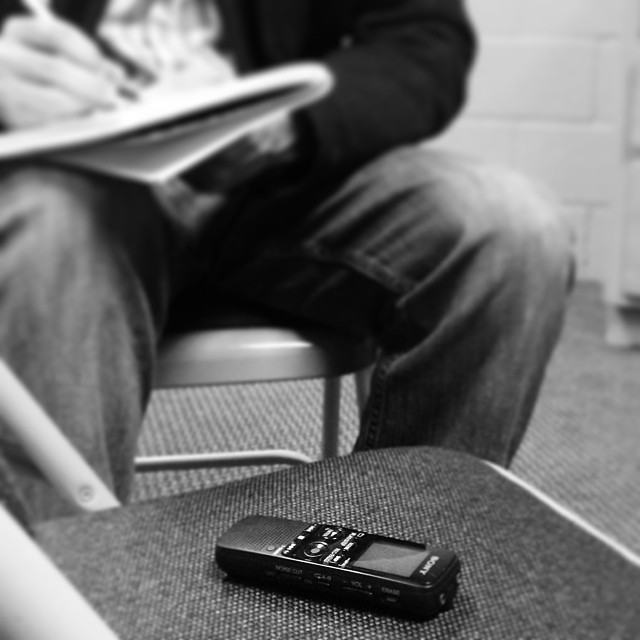
Anything could happen here, I think to myself as I drive into Los Angeles, down from those rugged hills. The sun sinks into the Pacific behind the motionless outlines of palm trees and the solid, flat black of square houses filled with people who are remembering and forgetting. They try to keep out the wildness, hiding behind gates and shrubs, lining perimeters with chain-link, pulling down heavy gates over storefronts facing out on to uneven sidewalks.
But the wildness cannot be contained.
Anything could happen here.
As I speed south on Route 5 and see signs for Fullerton, Anaheim, and Santa Ana, I experience the magnetism of Los Angeles, this sense that by morning I could either be starring in a film, searching for something important hidden in a storage unit, or overdosing on Skid Row. I look up under the long shadows cast by the lights that line the highway, I look up under the overpass, deep into that netherworld, and I see a disintegrating backpack, a few plastic trash bags, and I realize someone is living there. People are making homes even under the very roads we drive on.
Anything could happen here.
I could find my fortune, hidden among the rubble of the lost and withering things, or I could find my destruction. For some reason the latter feels much more likely.
There’s something about Los Angeles that makes me feel alive, that reminds me of the myriad directions this life could go. I think again about the people I saw through the windows of the houses sprawling all over the mountain. I think again about the person I didn’t see, hidden under the overpass. I think about all of these people, how they are forgetting and remembering, and while I’m thinking all of these things, the palm trees melt into the sky, now dark.
* * * * *
I sit in a shoebox-sized motel room and I can’t sleep for whatever reasons (they are legion), and it feels the same at 2am as it does at 5am. The walls are thin and I can hear others coming and going, doors slamming, latches clicking into place. Then the air conditioning unit roars to life and there is nothing else, just a humming, a rattling that reaches deep inside my mind and puts me to sleep.
I dream about the stories I heard earlier that night when I sat with women from Iran, the stories of so many lives, so much searching. The stories of finding and losing, of running and coming home, of wanting to live and being desperate to die. The stories that leaked from the eyes of those women were like tears, or liquid joy.
For just a moment, clarity. All of my own desires for fame, for being known, for money and talent and all the other things that will make me feel good…all those desires bow and move to the side. They part like a resistant body of water. I see clearly (for the first time?) that this thing I do, this telling of stories, is all that I have.
I have nothing but stories.
The knowledge of this is both a relief and a burden.
* * * * *
We are ruled by the narratives we chase. We see the narrative of the famous and the wealthy and we see happiness there, and fulfillment, and we wish that could be our story. We see the narrative of the powerful and we want that story, too, because we’ve felt so insignificant, so weak and used up, and we want to be the person at the other end of the abuse. Do we want to be the abuser? I don’t know but, dear God, anything but the abused, anything but that again.
We want to live the story of the family that hasn’t had to battle cancer, the story of the family with healthy children, the story of the single person who finds someone and lives happily-ever-after. We want the smooth story, the easy path. We reach out and grasp at so many other narratives, anything but our own, and we hold them close and they leach into our skin like ink, like a burn.
But then, in the midst of all that longing and striving and ceaseless desire to be “other,” that man with the voice I cannot forget says, Pick up your cross and follow me.
I stare long and hard at my cross. It seems rather rough and unpleasant. Not like all those other crosses that other people are asked to carry.
He says, Unless a seed falls to the ground and dies, it remains a single seed.
And the death I’m asked to die seems so much more deadly than the death my friends are dying.
He says, No greater love has any man than this, that he lay down his life for a friend.
* * * * *
In the morning I take a shower and then I get dressed and brush my teeth while reading things online about Philip Seymour Hoffman. I decide the room feels too small in which to spend another entire day, so I walk down the street to a bagel shop, planning on working there for a little while.
I sit down and get out the laptop and stare at the screen and everyone in there is very friendly. The shop is busy. The employees smile and work quickly. I wonder where all of these people will go after ordering their Western Omelette on a Bagel and their Hummus on a Bagel. I wonder what narrative they will pursue out into the traffic-filled streets of southern California, the streets that run long and straight under tall palm trees, the streets the hit the mountains and then turn in on themselves. I wonder what stories these people are chasing.
And I realize the stories I’m trying to write are too shy to come out in a place like that. They want to drip slowly out of my veins, to well up slowly, ruby-red, but in all of that speed, all of that commotion, they withdraw, fish darting into the shadows. I finish the breakfast I bought, and I realize I’ve lost the art of sitting. I go to cafes and I get out my laptop or stare at my phone, but I never just sit anymore. I never just look around.
When I do simply look around, I feel embarrassed, as if others might think I’m looking at them. As if the other people in the café will look at me and wonder what kind of a strange creature that is, just sitting, just looking, just thinking.
I walk back out into the cool morning, passing under palm trees, their shadows fading as the sun moves back behind the low-hanging clouds.
I go back into my room, the small room that is starting to stretch with me, the room where the stories are. And again I pick up my cross. And again I fall to the ground. And again I lay down my life. The words emerge and begin to drip like sap on the first warm day.
This is my story.
